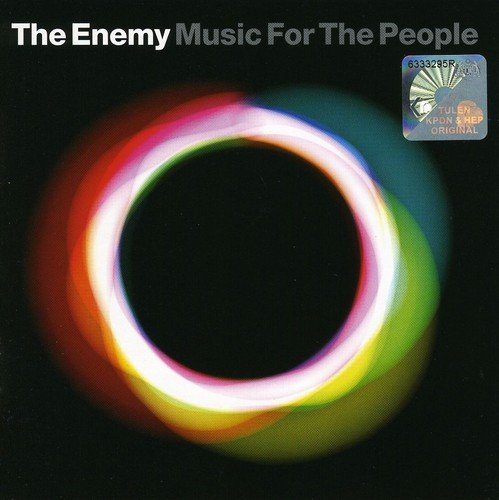
The Enemy
Music For The People
Release Date: Apr 27, 2009
Genre(s): Rock, Alternative
Record label: Warner
Music Critic Score
How the Music Critic Score works
Album Review: Music For The People by The Enemy
Mediocre, Based on 4 Critics
Based on rating 3/5
Stung by having been bracketed with the likes of the Pigeon Detectives, the Enemy are taking pains this time around to disassociate themselves from the landfill-indie bunch. Accordingly, the follow-up to their No 1 debut ramps up the volume and the politics - both so vehemently that what comes to mind is Rage Against the Machine and their proselytising ilk. So, mission accomplished, and fans must be revelling in the knowledge that the bulldozing single No Time for Tears, with its agitprop sentiment ("The morning after the revolution/ PC 1525 tells me there's no real solution"), is in this week's top 20.
Based on rating 4/10
The sophomore album by Coventry’s The Enemy lurches into frame with the aptly named “Elephant Song”. Likely titled for the guitar screeches in the atmospheric opening, which loosely evoke the trumpet calls of a distant herd of pachyderms, the tune is elephantine in its deliberation. Even as the savanna drops away to reveal a rock ‘n’ roll stadium, replete with epic riffing, orchestral support, and Tom Clarke’s earnest West Midlands barking, there’s a plodding aspect to the result that keeps it stubbornly earthbound.
Based on rating 2/10
"Keep losing, keep boozing" interjects self-proclaimed 'voice of the people' Tom Clarke, nine-tenths of the way through The Enemy's difficult (on the ears) second album. Disturbingly, this is one of the better moments on Music For The People, an album that the band themselves insisted would make people look at them in a different light, highlight the band as supremely talented musicians and gifted songwriters, and ultimately strike a chord with the 'working classes' Clarke so patronisingly claims to represent whilst denouncing those "posh people who live in castles" he goes out of his way to lambast. Well Tom Clarke, I've got news for you; burying turgid, second-rate Britpop riffs in a halo of pointless strings does not create the second coming of Urban Hymns.
Opinion: Excellent
These ambitious second albums represent the first salvo in what will be a long campaign: the struggle to make music that addresses the economic downturn and its disproportionate effect on youth. The most recent figures estimate that 1.5 million young men and women between 16 and 24 are unemployed: the highest figure for 15 years and rising. This is a recipe for depression, frustration and anger, as a whole generation has been brought up in a materialistic, consumerist world that has now receded out of reach.

